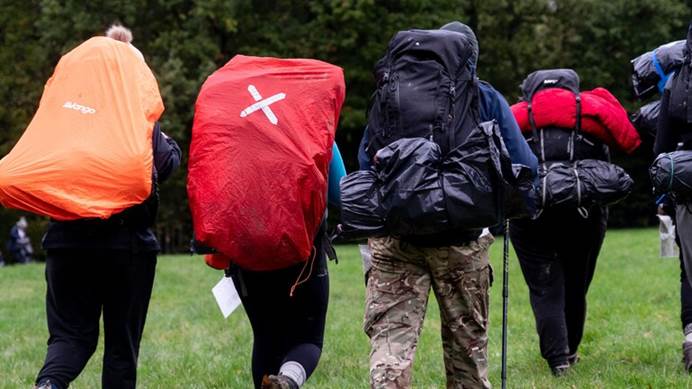Contracts with third parties
What to consider when working with third-party suppliers, including contract terms
This guidance is part of our toolkit for running large-scale events.
When entering into contracts, it’s crucial to make sure both parties clearly understand the agreement to avoid issues later.
It’s also important that the contract doesn’t expose Girlguiding to excessive financial or other risks.
Terms and conditions
Always ask for your supplier’s terms and conditions when entering into a contract with them. Make sure you read and fully understand these before signing.
While it's best to start with the supplier’s terms, these are often designed to protect their interests. Many suppliers are willing to negotiate, so don’t hesitate to ask for clauses that protect your interests. This might seem daunting, but most suppliers are willing to make reasonable changes, especially if they want your business.
Understanding the contract
Make sure you clarify any confusing parts of your contract. Standard terms can be complicated due to amendments over time. If any part is unclear, ask for an explanation. If needed, ask for a simplified version of the clause.
Ensure you understand penalties and what happens in different scenarios, like a force majeure (an extraordinary or unforeseen event). Having everything in writing protects both parties and clarifies responsibilities for costs in the event of disruption or cancellation.
Include what’s important to you
Suppliers often make promises during meetings to secure your business. Make sure these assurances are included in your contract, and it specifies deliverables, timelines and costs. If something isn’t in your contract, the supplier isn’t obliged to provide it.
Negotiating prices and terms is common, especially for large or repeat bookings. You might be able to secure better deals by bundling services or committing to future events. Make sure your supplier clearly understands their role in the supply chain.
Verify your supplier
Research potential suppliers by checking references, reviews and previous work to ensure reliability and quality. Choose suppliers based on quality and value, not just the lowest price.
Make sure your supplier legally exists and isn’t facing insolvency. For limited companies, check their company number and registered office on the Companies House website (link opens in new tab). For individuals, verify their address and landline number. Be cautious with foreign-based companies – make sure they have a UK-registered subsidiary or trading address.
Have a contingency plan
Always have a back-up supplier in case your primary one fails to deliver. Unexpected challenges may come up, so be prepared so your event runs smoothly.
Ensure everyone’s informed
Communicate key information about contracts to everyone managing the event. Make sure suppliers are aware of security processes, delivery schedules, and on-site set-up instructions to avoid logistical disruptions.
Important clauses to look out for
Below are the key contract clauses you should pay close attention to when reviewing any agreement with a supplier. Understanding these helps protect Girlguiding and makes sure the supplier delivers on their promises without exposing you to unexpected risks.
- Girlguiding has an insurance policy covering members and anyone acting on behalf of Girlguiding while taking part in guiding activities. Uniform isn’t required, but you must follow all relevant Girlguiding rules and policies. Otherwise, the policy may be invalid.
- Our cover extends to £50 million in total, though suppliers typically only ask for £20 million.
- If you’re asked for a higher level of cover, contact the Girlguiding insurance team - [email protected].
- View Girlguiding’s insurance policy and download our certificate.
- Contracts often include clauses asking you to cover the supplier for various losses – for example, consequential, economic or goodwill losses. These go beyond Girlguiding’s insurance and could leave you exposed.
- You should refuse indemnities that go beyond directly foreseeable losses (death, personal injury or damage to buildings).
- Most suppliers will accept this, as their liability is usually limited to the contract value except in cases of death or personal injury.
- Standard terms often say ‘time is not of the essence’, meaning you still need to pay even if goods arrive late.
- This can be a big issue for event-related contracts, where late delivery = no value.
- Make sure contracts clearly state that payment is dependent on delivery by a specific date, in the right quantity.
- Suppliers usually accept this if it’s agreed upfront.
- Confirm how long you have to pay once you receive the invoice.
- Payment should always depend on a proper invoice being issued.
- Most contracts include late payment interest – make sure the interest rate is clearly stated.
- Know what penalties apply if the supplier fails to meet the contract. These may be called ‘damages’ or ‘liquidated damages’.
- If time is sensitive, specify a penalty (a daily rate, for example) for late delivery.
- Check for hidden risks – like automatic renewal clauses. If these exist, make sure you give termination notice in time.
- Discuss responsibility for damage costs in advance – for example, heavy equipment damaging a venue floor.
- Any changes to the contract must be agreed by both parties in writing.
- The contract should state that no changes are valid unless documented and signed.
- Some suppliers include a clause allowing them to substitute goods if the originals are unavailable.
- For bespoke goods, ask for this clause to be removed.
- For perishable goods, a substitution clause is more reasonable, but make sure substitutes are of equal quality and value.
- Suppliers may include a clause letting them transfer (assign) the contract to someone else.
- If they insist, ask that any assignment is subject to your written consent – this gives you time to check the new company’s financial health and ability to deliver.
- If you’re buying a bespoke product, make sure the contract says the supplier won’t sell it to other third parties.
- If you want them to supply other Girlguiding or Scouting groups, ask for flexibility in the exclusivity clause so you can extend it if needed.
- Make sure you have the same right to cancel or terminate as the supplier.
- Look under the ‘termination’ or ‘cancellation’ section and negotiate balanced terms if needed.
- Include correct contact names and addresses for both parties.
- These are the official details to be used for sending contract-related notices.
- Make sure the contract is governed by UK law and that any disputes are resolved in UK courts. This avoids complications if you’re dealing with a supplier based in another country.






